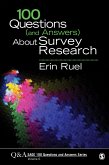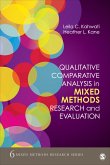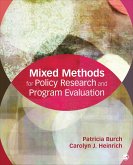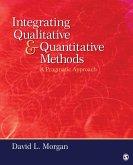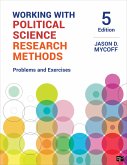Neil J. Salkind
100 Questions (and Answers) About Research Methods
Neil J. Salkind
100 Questions (and Answers) About Research Methods
- Broschiertes Buch
- Merkliste
- Auf die Merkliste
- Bewerten Bewerten
- Teilen
- Produkt teilen
- Produkterinnerung
- Produkterinnerung
The handy guide that helps readers better understand the process of research, from the initial asking of questions through to the analysis and interpretation of data leading to a final report - and everything in between.
Andere Kunden interessierten sich auch für
![100 Questions (and Answers) About Survey Research 100 Questions (and Answers) About Survey Research]() Erin Ruel100 Questions (and Answers) About Survey Research52,99 €
Erin Ruel100 Questions (and Answers) About Survey Research52,99 €![Qualitative Comparative Analysis in Mixed Methods Research and Evaluation Qualitative Comparative Analysis in Mixed Methods Research and Evaluation]() Leila KahwatiQualitative Comparative Analysis in Mixed Methods Research and Evaluation81,99 €
Leila KahwatiQualitative Comparative Analysis in Mixed Methods Research and Evaluation81,99 €![Mixed Methods for Policy Research and Program Evaluation Mixed Methods for Policy Research and Program Evaluation]() Patricia E. BurchMixed Methods for Policy Research and Program Evaluation109,99 €
Patricia E. BurchMixed Methods for Policy Research and Program Evaluation109,99 €![Integrating Qualitative and Quantitative Methods Integrating Qualitative and Quantitative Methods]() David L. MorganIntegrating Qualitative and Quantitative Methods116,99 €
David L. MorganIntegrating Qualitative and Quantitative Methods116,99 €![A Primer on Partial Least Squares Structural Equation Modeling (PLS-SEM) A Primer on Partial Least Squares Structural Equation Modeling (PLS-SEM)]() Joe HairA Primer on Partial Least Squares Structural Equation Modeling (PLS-SEM)81,99 €
Joe HairA Primer on Partial Least Squares Structural Equation Modeling (PLS-SEM)81,99 €![Data Visualization & Presentation With Microsoft Office Data Visualization & Presentation With Microsoft Office]() Valerie M. SueData Visualization & Presentation With Microsoft Office109,99 €
Valerie M. SueData Visualization & Presentation With Microsoft Office109,99 €![Working with Political Science Research Methods Working with Political Science Research Methods]() Jason D. MycoffWorking with Political Science Research Methods80,99 €
Jason D. MycoffWorking with Political Science Research Methods80,99 €-
-
-
The handy guide that helps readers better understand the process of research, from the initial asking of questions through to the analysis and interpretation of data leading to a final report - and everything in between.
Produktdetails
- Produktdetails
- SAGE 100 Questions and Answers
- Verlag: SAGE Publications Inc
- Artikelnr. des Verlages: B92039P
- Seitenzahl: 192
- Erscheinungstermin: 20. Juli 2011
- Englisch
- Abmessung: 229mm x 154mm x 14mm
- Gewicht: 292g
- ISBN-13: 9781412992039
- ISBN-10: 1412992036
- Artikelnr.: 33137752
- Herstellerkennzeichnung
- Libri GmbH
- Europaallee 1
- 36244 Bad Hersfeld
- gpsr@libri.de
- SAGE 100 Questions and Answers
- Verlag: SAGE Publications Inc
- Artikelnr. des Verlages: B92039P
- Seitenzahl: 192
- Erscheinungstermin: 20. Juli 2011
- Englisch
- Abmessung: 229mm x 154mm x 14mm
- Gewicht: 292g
- ISBN-13: 9781412992039
- ISBN-10: 1412992036
- Artikelnr.: 33137752
- Herstellerkennzeichnung
- Libri GmbH
- Europaallee 1
- 36244 Bad Hersfeld
- gpsr@libri.de
Neil J. Salkind received his PhD in human development from the University of Maryland, and after teaching for 35 years at the University of Kansas, he was Professor Emeritus in the Department of Psychology and Research in Education, where he collaborated with colleagues and work with students. His early interests were in the area of children's cognitive development, and after research in the areas of cognitive style and (what was then known as) hyperactivity, he was a postdoctoral fellow at the University of North Carolina's Bush Center for Child and Family Policy. His work then changed direction to focus on child and family policy, specifically the impact of alternative forms of public support on various child and family outcomes. He delivered more than 150 professional papers and presentations; written more than 100 trade and textbooks; and is the author of Statistics for People Who (Think They) Hate Statistics (SAGE), Theories of Human Development (SAGE), and Exploring Research (Prentice Hall). He has edited several encyclopedias, including the Encyclopedia of Human Development, the Encyclopedia of Measurement and Statistics, and the Encyclopedia of Research Design. He was editor of Child Development Abstracts and Bibliography for 13 years. He lived in Lawrence, Kansas, where he liked to read, swim with the River City Sharks, work as the proprietor and sole employee of big boy press, bake brownies (see www.statisticsforpeople.com for the recipe), and poke around old Volvos and old houses.
Part 1. Understanding the Research Process and Getting Started
Part 2. Reviewing and Writing About Your Research Question
Part 3. Introductory Ideas About Ethics
Part 4. Research Methods: Knowing the Language, Knowing the Ideas
Part 5. Sampling Ideas and Issues
Part 6. Describing Data Using Descriptive Techniques
Part 7. All About Testing and Measuring
Part 8. Understanding Different Research Methods
Part 9. All About Inference and Significance
Part 2. Reviewing and Writing About Your Research Question
Part 3. Introductory Ideas About Ethics
Part 4. Research Methods: Knowing the Language, Knowing the Ideas
Part 5. Sampling Ideas and Issues
Part 6. Describing Data Using Descriptive Techniques
Part 7. All About Testing and Measuring
Part 8. Understanding Different Research Methods
Part 9. All About Inference and Significance
Part 1. Understanding the Research Process and Getting Started
Part 2. Reviewing and Writing About Your Research Question
Part 3. Introductory Ideas About Ethics
Part 4. Research Methods: Knowing the Language, Knowing the Ideas
Part 5. Sampling Ideas and Issues
Part 6. Describing Data Using Descriptive Techniques
Part 7. All About Testing and Measuring
Part 8. Understanding Different Research Methods
Part 9. All About Inference and Significance
Part 2. Reviewing and Writing About Your Research Question
Part 3. Introductory Ideas About Ethics
Part 4. Research Methods: Knowing the Language, Knowing the Ideas
Part 5. Sampling Ideas and Issues
Part 6. Describing Data Using Descriptive Techniques
Part 7. All About Testing and Measuring
Part 8. Understanding Different Research Methods
Part 9. All About Inference and Significance


